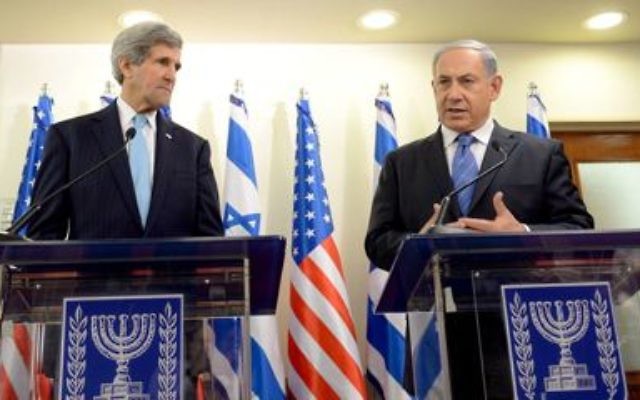Deadline day passes
Tuesday was a surreal day in Israel. For nine months, April 29 has been bandied about as the day when a peace agreement would start to take shape, or when a funeral would be held for the two-state solution.
But unlike the previous day, Tuesday was just an average day. It was on Monday that the traffic ground to a halt to mark the end of the world – the end of the world for much of European Jewry seven decades ago. With the national siren that causes everyone to grind to a halt, Yom Hashoah wasn’t a normal day, but Tuesday was.
There wasn’t a sense of dread in the air, and neither was there a sense of surprise. Most of Israel wanted a peace agreement during the talks, but didn’t believe that this round of negotiations would pave the way to one.
Israelis are used to living with predictions of doom. They don’t take the threats of Palestinians seriously, they don’t take the warnings of their leaders seriously, and if they don’t like what they read they don’t even take the weather forecast seriously.
America says that the window for the two-state solution is closing fast; Israelis say that it has been closing fast for as long as they can remember.
But because there isn’t an immediate explosion doesn’t mean that Israel isn’t poised to feel the impact of a breakdown of talks.
The security establishment is on stand by for an escalation, police in Jerusalem are prepared for a conflagration on Temple Mount, and diplomats are as ready as they will ever be to watch the Palestinians woo the world with their unilateral moves at the United Nations.
The thing is that even if all of this happens, it won’t have an immediate impact on the average Israeli citizen, who never visits the West Bank or Temple Mount, and who follows Manchester United more closely than the United Nations. For him or her, the Palestinian problem is still out of sight and out of mind – though it’s unclear for how long it will be.


comments